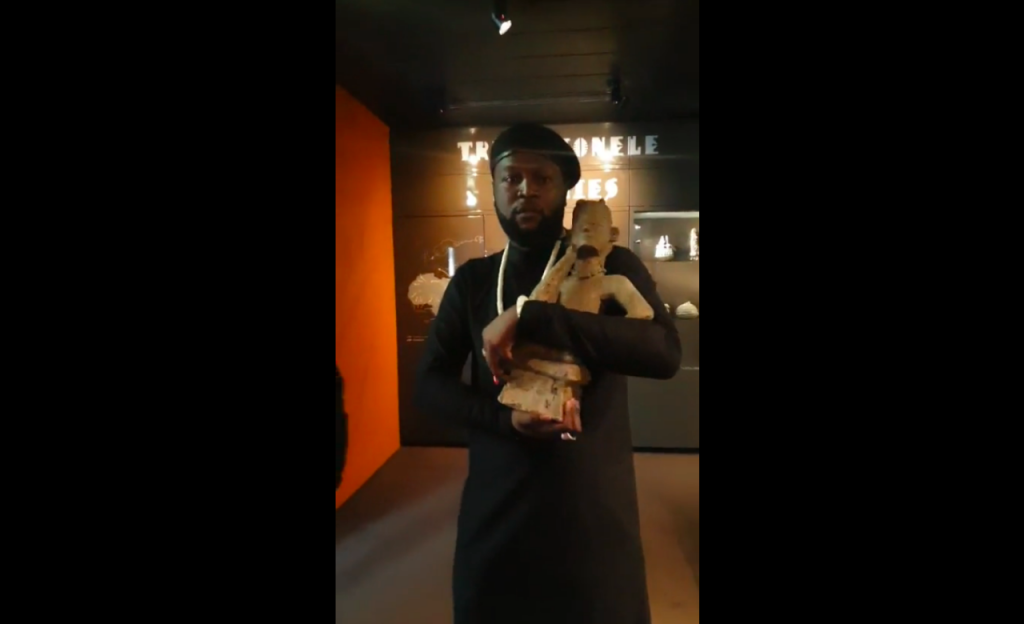Mwazulu Diyabanza turns restitution into direct action: He became known, among other things, for his attempt to remove a mourning stele from the Musée du Quai Branly in Paris in order to return it to the Bari people in Chad. Theft, say European Courts. Really? – Diyabanza asks.
You have been lied to! You were told that Mwazulu Diyabanza is a thief.
When we speak of a thief, we speak of someone who leaves their home and goes to someone else, with the intention of taking what belongs to the other. You will agree that it was not me who went off. Let me remind you of the story, or better, history. There have been several waves of people who went off to rob and steal.
In the 12th and 13th century they arrived at the African coasts and started the first wave of robbery – appropriating what was not theirs. Between 1860 and 1960 there was a second wave, which we call hyper-colonialism. This was the period in which the African empires and kingdoms were destroyed. They were annexed by the European empires. One part was the French empire, another was the Belgian empire, another was the Spanish empire and so on. During that time, they helped themselves. Took what they considered their property. The third wave began around 1960, when African countries became sovereign states. Obscure forces triggered what we now call ethnic conflicts and tribal wars in Africa. While the countries and peoples of Africa were fighting each other, the cultural patrimony that had survived the centuries of slavery and hyper-colonialism was robbed. This third neocolonialist wave lasted from 1960 to 1992, in which some Africans acted as a buffer zone for dirty deals. From 1992, the fourth wave followed. This is, when trick and fraud came into play.

There was encouragement to steal: Go steal, we have the money to pay you. This was unlawful trade with our craftworks and our heritage. They were the ones who stole. They went out to steal, and they stole a part of me. They stole a part of my history, a part of my identity. They stole a part of my memory, a part of my past. Maybe also a part of my future. And I did what everyone here would do if they saw a thief: I took back what they had stolen without asking for permission. This is the compass that guides us step by step in our struggle: Never to ask for permission when we take back what has been stolen from us. This is what Mwazulu Diyabanza does: I set out to find what they stole from us, because it is more important than what they left us.
They took the earth and left us the bible. They took the culture and left us religion. They stole cocoa from us.
This cocoa has healing and nourishing properties, much more than the chocolate they bring back at unaffordable prices. They stole all of that from us. This part of us that would have allowed us to make our own way in the global structure. The consequence of breaking the cultural spine of the African peoples is that these peoples walk bent to this day. We have been bent forever, we are subordinated on a political, cultural, economic level as well as on the level of personal and collective safety. Mwazulu Diyabanza is not the thief, they are.
Excerpt from a speech by Mwazulu Diyabanza delivered in Palermo on June 3, 2022
Picture from: Restitution? Africa’s Fight for Its Art by Nora Philippe, France, 2022, 82 min, Produced by Fabienne Servan Schreiber, Laurence Miller
